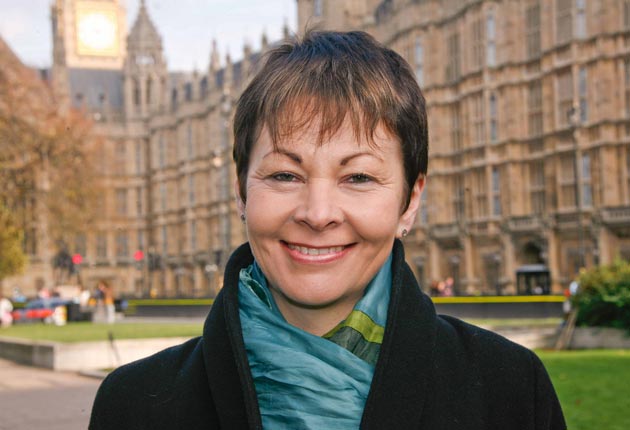Green Party MP Caroline Lucas has opposed the government’s Housing and Planning Bill, claiming it represents a squandered opportunity for improving the energy efficiency of new homes built in the UK.
The Bill seeks to implement new rules governing a range of policies related to housing and is intended to pave the way for the government to meet its target of building one million new homes by 2020. However, the legislation has been criticised for failing to ensure high standards of energy efficiency in new housing stock following the scrapping of the zero carbon homes policy which was due to come into force this year.
Caroline Lucas, the Green Party’s only representative in Westminster, has again called attention to the government’s lack of policy in this area, adding that she plans to vote against the Bill.
“The government should have seized this moment to ‘eco-fit’ homes across the UK. That means solar panels on every suitable house (as well as on public buildings) and a mass-insulation scheme across the UK – which would create jobs, cut heating bills and keep people warm in their homes.
“Instead there’s no guarantee in the Bill that new homes will be energy efficient – and no commitment to the kind of retrofitting scheme we desperately need. Another opportunity squandered,” Lucas said.
“I’ll be voting against the Housing and Planning Bill – and I’d urge MPs from all sides of the House of Commons to do the same.”
The Department of Communities and Local Government (DCLG) has been lobbied by a number of individuals seeking improvements to energy efficiency policy through the Housing and Planning Bill. Lord Krebs, a member of the Committee on Climate Change, wrote to DCLG’s parliamentary under secretary of state, Baroness Williams, before Christmas calling for the Bill to be used to build towards new European Regulations due to come into force at the end of 2020.
In his letter, Lord Krebs said: “There is an opportunity through this Bill to make sure the aspiration to build an additional one million homes by 2020 does not come at the expense of burdening their occupants with long term costs and climate impacts whilst also rendering the UK’s statutory greenhouse gas emission targets more difficult to achieve.”
He also added that there is no evidence “such measures will affect the speed at which the UK can build new homes,” skewering the government’s claims last year that zero carbon residential construction would prove to be “an obstacle” to higher levels of house building.
The Bill is set to have a second day at report stage on a date yet to be announced, when a third reading is scheduled to take place before the Bill is passed to the House of Lords.






